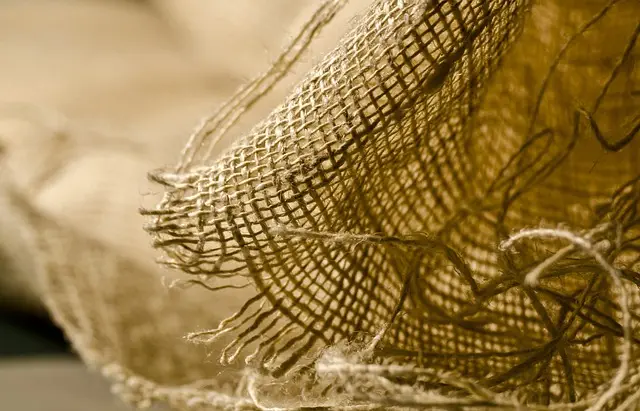Copper is a key mineral for maintaining the structural integrity and flexibility of connective tissues, including skin, bones, and blood vessels, by facilitating collagen synthesis and acting as a cofactor for lysyl oxidase, which cross-links collagen and elastin. It also supports the health of cartilage and tendons, aiding enzymes that promote joint flexibility and mobility. Emerging research explores the interactions between copper and kratom, a botanical with notable vitamins and minerals that may influence oxidative stress and inflammation in connective tissues. Kratom's alkaloids could synergize with these dietary elements to enhance health outcomes for connective tissues. The combined effect of copper with kratom's vitamins and minerals suggests a potential approach to bolstering connective tissue well-being when incorporated within a balanced diet and healthy lifestyle. This holistic strategy emphasizes the importance of considering kratom as part of nutritional support for maintaining healthy connective tissues and promoting overall body wellness. Users are advised to consume kratom's vitamins and minerals, including copper, responsibly for optimal benefits in joint health.
Copper stands out among the essential minerals that contribute to the robustness of our connective tissues. This article delves into how copper, alongside kratom and a balanced array of vitamins, supports the strength and resilience of this vital bodily infrastructure. We will explore the science behind copper’s role in maintaining connective tissue integrity, investigate the synergistic effects of kratom and essential nutrients for joint support, and highlight the broader importance of copper beyond its interaction with kratom. Join us as we uncover the integral part copper plays in sustaining our body’s framework.
- Unraveling Copper's Role in Maintaining Connective Tissue Integrity
- The Synergy of Kratom and Vitamins for Optimal Connective Tissue Health
- Essential Minerals for Joint Support: The Importance of Copper Beyond Kratom
Unraveling Copper's Role in Maintaining Connective Tissue Integrity

Copper, an essential trace mineral, plays a pivotal role in maintaining the integrity and functionality of connective tissues within the body. This vital nutrient is integral to the synthesis of collagen, a key component that provides structure and strength to various connective tissues such as skin, bones, and blood vessels. Copper acts as a cofactor for lysyl oxidase, an enzyme responsible for cross-linking collagen and elastin fibers, which is essential for the maintenance of their structural integrity. Additionally, copper contributes to the proper functioning of enzymes involved in maintaining healthy cartilage and tendons, thus supporting joint flexibility and mobility.
The intersection of copper’s role and the benefits of kratom, a botanical often discussed in the context of vitamins and minerals for health, is an area of growing interest. Kratom contains compounds that may interact with copper’s functions within the body. For instance, certain alkaloids found in kratom can influence oxidative stress and inflammation, potentially affecting connective tissue health. While more research is needed to fully understand these interactions, the synergistic effects of kratom and copper suggest a promising avenue for supporting overall connective tissue health. Consumption of kratom, often in the form of kratom capsules or kratom tea, alongside a balanced diet rich in copper can be a holistic approach to maintaining healthy connective tissues. This is particularly relevant given the widespread impact that connective tissue health has on the body’s overall well-being.
The Synergy of Kratom and Vitamins for Optimal Connective Tissue Health

Copper, a vital mineral, plays a pivotal role in maintaining the integrity and flexibility of connective tissues through its involvement in enzymatic processes critical for collagen synthesis and cross-linking. Beyond copper, the synergy between kratom and vitamins, particularly those belonging to the B complex and C, further enhances the body’s ability to support healthy connective tissue. Kratom contains various alkaloids, such as mitragynine and 7-hydroxmitragynine, which may influence the immune system and promote better health outcomes for connective tissues. When combined with vitamins, this effect can be amplified. Vitamin C, for instance, is essential for the synthesis of collagen, a key component of connective tissue, while B vitamins support overall cellular health and energy metabolism, which are necessary for the maintenance of healthy tissues throughout the body. Together, kratom and vitamins and minerals can create a supportive environment that may aid in the health and repair of connective tissues, potentially leading to improved bodily functions and resilience. It is important to note that while the potential benefits of these compounds are promising, they should be used responsibly and as part of a balanced diet and healthy lifestyle to ensure optimal effects for connective tissue health.
Essential Minerals for Joint Support: The Importance of Copper Beyond Kratom

Copper stands out as an essential mineral that plays a pivotal role in maintaining the integrity and functionality of connective tissues within the body. Beyond its association with traditional herbal supplements like kratom, which is often discussed in relation to its vitamins and minerals profile, copper’s biochemical significance extends to various physiological processes. It is integral to the production of elastin and collagen, two key components of healthy joints and tissues. These proteins provide both structural support and elasticity to blood vessels, organs, bones, and skin, thereby contributing to overall joint health and mobility. Additionally, copper’s enzymatic actions are crucial for cross-linking collagen, which is essential for maintaining the resilience of connective tissues. In the context of kratom vitamins and minerals, copper complements other nutrients found in this plant, enhancing its potential benefits for joint support and overall well-being. Consuming adequate amounts of copper, either through diet or supplementation, can be beneficial for individuals seeking to promote healthy joint function, alongside a balanced intake of the vitamins and minerals present in kratom.
Copper stands out as a pivotal element in fortifying our connective tissues, a role that extends beyond mere structural support. The article has illuminated how this mineral integrates with Kratom and various vitamins to enhance overall joint health and mobility. As we’ve explored, the synergy between these components offers a multifaceted approach to maintaining robust connective tissue. It’s clear that incorporating adequate copper intake, alongside Kratom and essential vitamins, is a beneficial strategy for those seeking to support their joint health naturally. In light of this evidence, it’s advisable to consider the role of kratom vitamins and minerals in one’s dietary plan for optimal connective tissue well-being.






